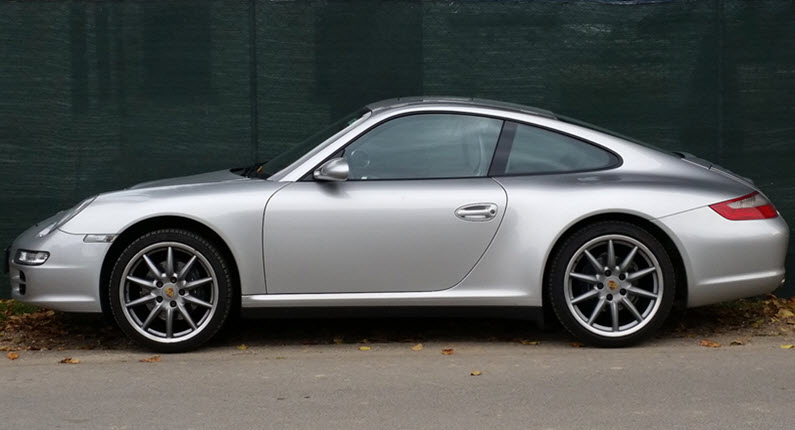If you have concerns or questions about your Porsche IMS bearing, you are not alone, as other other Porsche owners have faced this same problem. The Porsche IMS bearing troubles have caused issues in these engines for numerous years and are well known to most (if not all) Porsche 911 owners.
The Purpose of an IMS Bearing
The IMS, or InterMediate Shaft, bearing is the supporting bearing of the shaft in the engine. It’s purpose is to reduce the speed of the chains around the crankshaft on the flywheel end of the motor. This allows for a longer lifespan of your engine’s parts. The problem is not with the intermediate shaft but the gears at the ends of the shaft which run from the front of your engine to the back of it. There are bearings that are at the ends of these gears that allow them to rotate with the engine’s produced torque. When these bearings become faulty, the intermediate shaft can no longer do its job.
The main reason these bearings fail is due to a lack of lubrication and breakdown due to extreme heat conditions. Let’s take a closer look.
Reasons for IMS Bearing Failure
A variety of circumstances can cause IMS bearing failure, and it is typically the result of a combination of them. It’s difficult to say with certainty the actual rate of failure of these IMS bearings. A lack of lubrication paired with a high load, resulting in overheating, is the most common cause of IMS failure.
The steel will shatter as a result of the overheating, resulting in a pit. When this happens, the smooth design of the bearing wears out much faster and fails far sooner than it should. If this occurs, it can result in catastrophic engine damage and thousands of dollars in repairs, which is why it is often at the crux of the Porsche community forums.
You can see why it is vital to keep an eye out for warning signs. If your bearing is failing, you may detect metal debris in the oil filter, have an oil leak towards the back of the engine, or hear a pounding sound coming from the motor.
The failure rate of these original bearings can be as high as 10% after 90,000 miles on average. While some IMS bearings can degrade around 3,000 miles, they can also last for hundreds of thousands of miles. Routine maintenance and proper inspections by Porsche specialists is the key to keeping an eye out for this problem and preventing it before it becomes a problem.
How to Minimize the Risk of Failure
The best strategy to prevent an unexpected failure is to replace the IMS bearing unit. However, this is not necessarily the most cost-effective option.
The IMS bearing is accessible in 1997 to 2005 engines and may be replaced without dismantling the engine. However, in 2006 to 2008 models, the IMS bearing is not easily accessible, and 0the engine must be disassembled to replace it. The best way to ensure that the bearing is healthy is to keep it adequately lubricated and cooled to extend its lifespan.
Encore Motorcars: #1 Maintenance and Repair Center for Sports Vehicles
On the internet, there is a lot of contradicting and misleading information concerning the Porsche IMS bearing. Contact us here  if you’re still unclear about what to do to maintain your Porsche in top condition. Our mechanics are knowledgeable in the situation and can assist you in determining what needs to be accomplished to avert potential issues that can cost thousands down the road.
if you’re still unclear about what to do to maintain your Porsche in top condition. Our mechanics are knowledgeable in the situation and can assist you in determining what needs to be accomplished to avert potential issues that can cost thousands down the road.
Encore Motorcars understands that it may be a major source of aggravation and stress when the IMS bearing fails. As a result, we strive to make the repair procedure as painless as possible. Porsche owners in Ellenton, Nokomis, Osprey, Parrish, Venice, Lakewood Ranch, Longboat Key, Siesta Key, University Park, and Sarasota, FL have relied on our qualified experts for many years.
We want to help you keep your foreign car operating smoothly and securely, so give us a call or come in to set up an appointment for an inspection and any necessary repairs.
* Porsche 911 Carrera Car image credit goes to: Streager.

